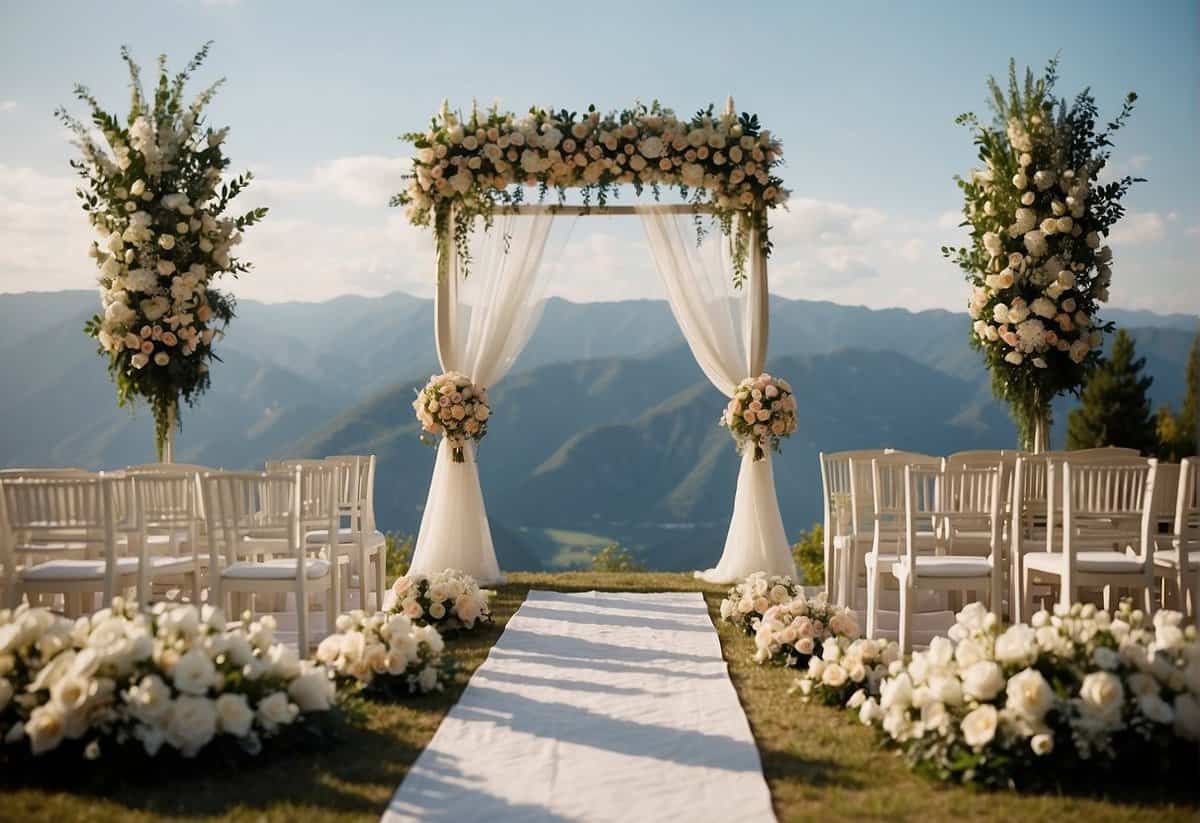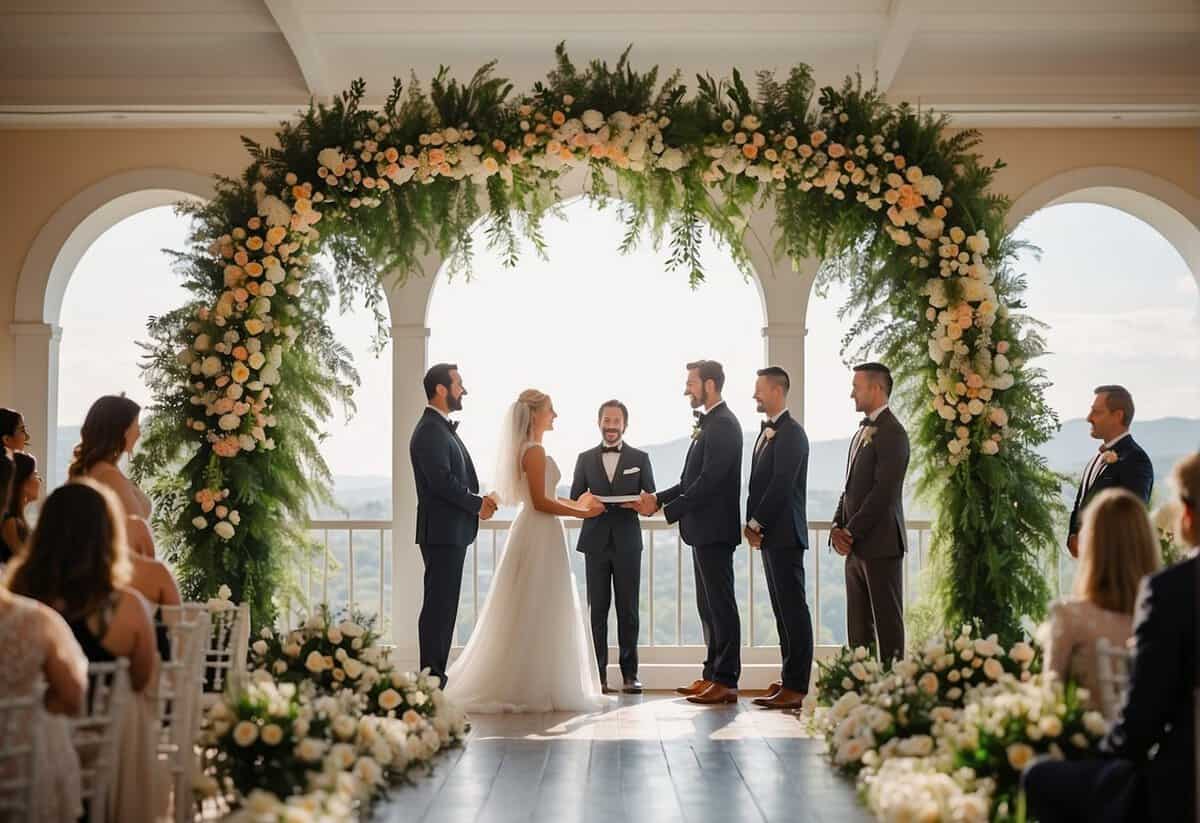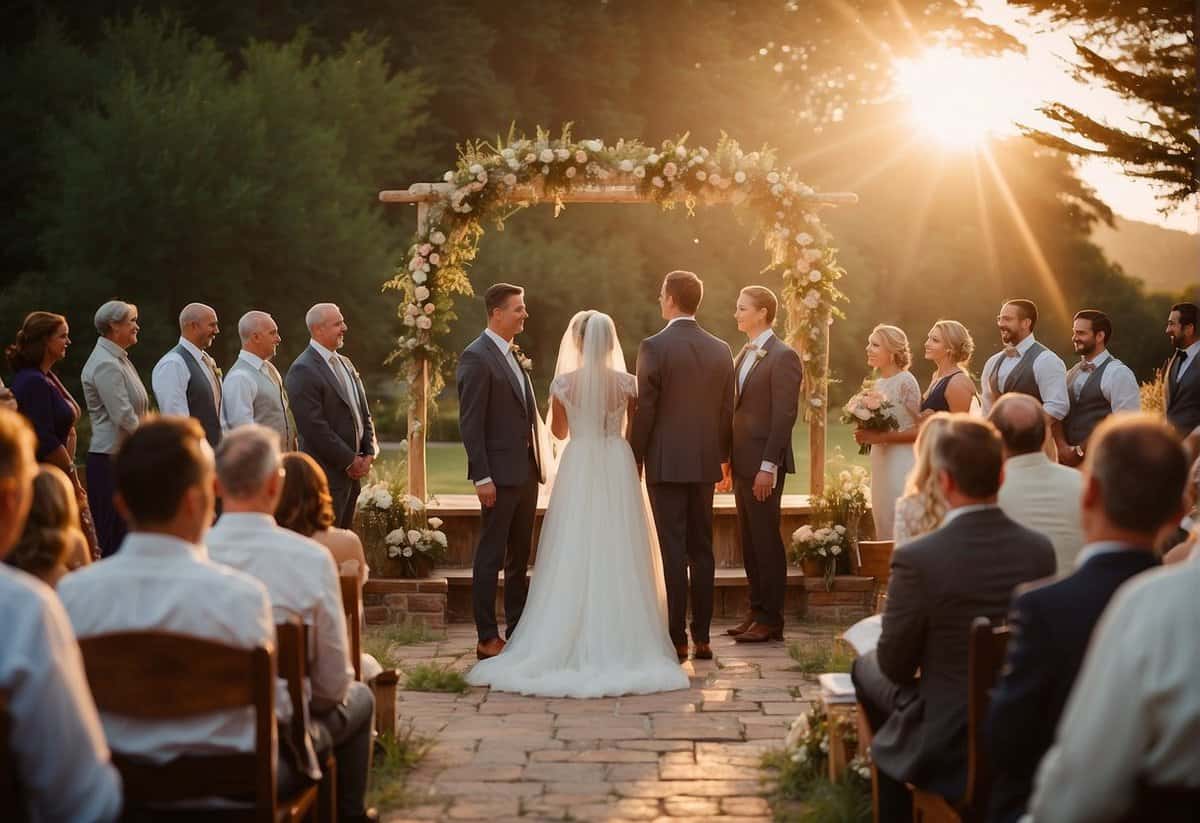Is It Necessary to Have a Wedding? Exploring Alternatives to Traditional Nuptials
When considering the essentials of your wedding day, you might ponder whether a traditional wedding ceremony is truly necessary. Your special day is a deeply personal event and its form should align with your values, financial comfort, and legal requirements. While some envision a lavish affair with all the trimmings, others may find that a simple, intimate gathering—or even eloping—resonates more with their idea of a meaningful union. The necessity of a wedding is subjective, and at the core, what matters is the commitment between you and your partner.

The concept of a ‘necessary’ wedding can be influenced by various factors, from cultural expectations to personal dreams. Yet, legally, the requirements to be wed may not mandate a ceremony at all. In many places, the legal union may simply require that you and your partner appear before an authorized officiant and procure a marriage license. This suggests that the necessity of a wedding rests upon your shoulders and your notion of what defines your relationship. Ultimately, your wedding day is about the affirmation of your partnership in the way that feels most authentic to you.
Key Takeaways
- Your wedding should reflect personal values and meet the minimum legal requirements to be considered a marriage.
- A traditional wedding ceremony is not legally necessary, and the commitment can be honored in various ways.
- Defining the ‘necessity’ of your wedding day is a personal choice driven by cultural, emotional, and financial considerations.
Understanding the Significance of a Wedding

Weddings are not just days to mark on a calendar; they encapsulate moments where you celebrate your love and commitment in the presence of those dear to you. These events are steeped in tradition and personal value that resonate deeply with the couple and their families.
Cultural and Social Dimensions
Weddings often act as a bridge between cultures, encapsulating a rich tapestry of customs that have been passed down through generations. This celebration is an opportunity for your families to come together and honor both heritage and unity. No matter where you are in the world, a wedding ceremony is highly regarded as a significant social event that marks a pivotal transition in your life and signals your commitment, not just to each other, but to society at large.
Personal Significance and Commitment
The heart of your wedding is the commitment ceremony, where you and your partner publicly declare your intention to navigate life’s journeys together. This personal significance is why many choose a wedding to express their love. It’s that moment when you look into each other’s eyes and make promises that are much more than legal formalities. For you, it could be a profound expression of your desire to build a life with your significant other, a life filled with shared joys and challenges.
Planning the Wedding

When it comes to your special day, planning your wedding with care is crucial. It’s about understanding every fine detail, from how to manage your budget effectively, to picking the perfect venue, to crafting a guest list that reflects your journey.
Budgeting and Expenses
You’ll want to set a realistic budget early in your wedding planning process. This will guide all your decisions and help keep expenses in check. When budgeting, factor in the following:
- Venue: often the largest expense
- Catering: roughly per head cost
- Photography/Videography: varies widely
- Attire and Beauty: from affordable options to designer splurges
- Flowers and Decor: which can also range in price
- Entertainment: such as DJs or bands
- Wedding Planner: if you opt for professional help
Remember, hidden costs can pop up, so include a contingency fund of about 10%.
Selecting the Venue
The venue sets the stage for your entire wedding and factors heavily into your budget. An effective approach is to consider:
- Location: accessible for your guests, and aligning with your desired theme
- Capacity: enough space for your guest list
- Services Offered: like catering or rentals, to potentially save money
- Availability: popular venues book far in advance
Creating a Guest List
Your guest list shapes the atmosphere of your wedding and impacts multiple aspects, including the venue size and catering budget. To streamline this process:
- Prioritize immediate family, close friends, and significant relationships.
- Consider plus-ones and how they affect numbers.
Designing the Ceremony
The heart of your celebration is the wedding ceremony. Designing it includes:
- Marriage License: vital for your union to be legally recognized
- Wedding Programs: so guests understand the flow of the ceremony
- Vows: personalize this moment to make it truly yours
- Officiant: who guides the ceremony, whether it’s religious or secular
Focus on what feels authentic to you as a couple and the rest will fall into place.
The Big Day: Execution and Experience

The execution and experience of your wedding day hinge on thoughtful coordination and an awareness of the day’s emotional significance. Ensuring a seamless flow of events allows you, your family, and guests to immerse fully in the celebratory atmosphere.
Managing Logistics
Stress often peaks as you coordinate the many moving parts of your wedding day. It’s crucial to handle logistics with precision. To assist with organization, use technology like wedding planning apps to keep track of tasks and share updates with the wedding party. A detailed schedule that outlines the roles of bridesmaids, groomsmen, and parents helps avoid confusion. Don’t overlook the smaller details, such as gifts for the wedding party, or ensuring that specialty items from the registry are ready for display.
- Morning Set-Up: Confirm times with vendors, decorate the venue.
- Coordinator: Designate a point person to oversee the day’s flow.
- Communication: Establish a group chat for quick updates.
The Ceremony Processional
The walk down the aisle is a defining moment that should be carefully tailored to your vision. Line up the processional in advance, so everyone knows their order and pacing. Traditionally, the bride makes a memorable entrance after the wedding party has proceeded, but feel free to customize this tradition to suit your style.
Entrance Order:
- Parents
- Groomsmen
- Bridesmaids
- Bride
Music and Timing: Rehearse to the chosen music to get the timing right.
The Reception Activities
Post-ceremony, the wedding reception becomes the heart of celebration where wedding guests engage in dining and entertainment. Plan activities that reflect your personality—whether it’s a heartfelt first dance, a playful shoe game, or a group photo session. Remember to allow space for impromptu moments; they often become the most cherished memories.
- Meal Planning: Curate a menu suitable for all guests.
- Timetable: Outline the timing of speeches, dances, and cake-cutting.
- Guest Experience: Includes interactive elements like a photo booth or a live band.
By managing these facets with empathy and precision, you set the stage for a wedding that will be cherished in memories for a lifetime.
After the Wedding

After your special day, it’s time to focus on preserving those beautiful moments and taking care of the essential formalities.
Memories and Keepsakes
You’ll want to cherish the memories of your wedding day forever. One way to do that is by creating a wedding album or a shadow box where you can keep physical items like your wedding program and a map of your venue. Don’t forget to save a copy of the order of events and any special readings or musical selections that made your day unique. These keepsakes will help you remember the happiness and love you felt on that day.
- Memento: Consider having your wedding bouquet preserved or keeping a slice of your wedding cake to be enjoyed on your first anniversary.
- Digital Keepsakes: Create an album on social media with your favorite photos and ask friends to contribute their pictures and updates, using a special hashtag.
Legal and Administrative Steps
Now it’s time to tackle the necessary paperwork. Start by ensuring all your vendors are paid and that you’ve received all bills related to your wedding.
- Marriage Certificate: Check that you’ve filed for your official marriage certificate—you’ll need this for many legal procedures.
- Name Change: If you’re choosing to change your name, start the process with social security and DMV first, then update other documents gradually.
- Financial Accounts: Consider if and how you’ll merge bank accounts or update your beneficiary information.
- Legal Status: Ensure your new marital status is reflected in all legal documents, including insurance policies, wills, and property titles.
Keeping track of these details now will set you up for a smoother transition into married life.
Frequently Asked Questions

In this section, you’ll find common inquiries about the necessity of a wedding ceremony and the various alternatives available to you.
Can a relationship be official without a wedding ceremony?
Absolutely, a relationship can be official without a wedding ceremony. Many couples choose to solidify their commitment in other ways that are personally meaningful to them.
What are the alternative options to traditional wedding ceremonies?
Alternative options include commitment ceremonies, civil unions, and domestic partnerships. These can be as intimate or public as you wish and don’t necessarily require the legal or religious formalities of a traditional wedding.
Are there legal implications if we decide not to have a wedding?
Yes, depending on your country or state, not having a formal wedding can affect property rights, next of kin status, and other legal benefits that come with marriage.
How can a couple be legally recognized without a formal wedding?
A couple can be legally recognized through a civil union or domestic partnership. In some places, common-law marriage also provides legal recognition after living together for a certain period of time.
Is it common for people to regret not having a wedding?
Regret is a personal feeling and varies greatly between individuals. Some may regret not having a wedding, while others feel satisfied with their decision to forego traditional ceremonies.
What are some unconventional but legal ways to recognize a partnership?
Partnerships can be recognized through cohabitation agreements, signing a domestic partnership affidavit, or by hosting a commitment ceremony that, while not legally binding, can symbolize your commitment to one another.

